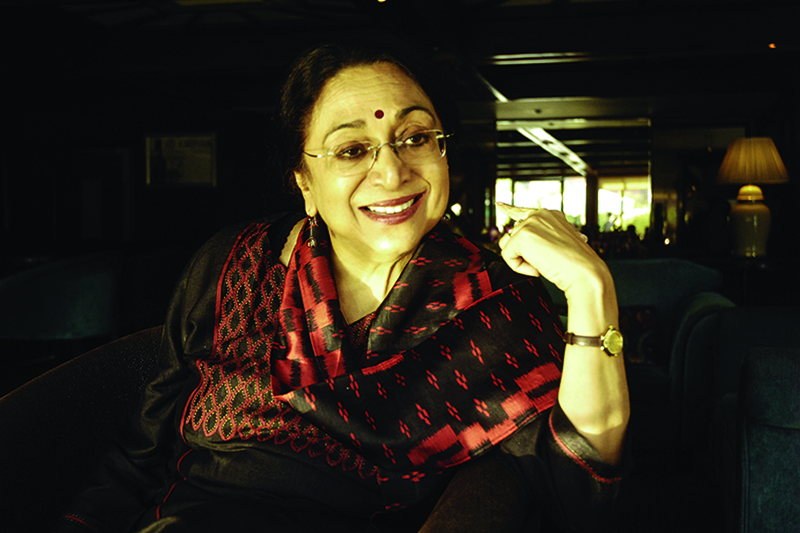Agent of positive change
KATHMANDU: For Dr Meenakshi Gopinath leadership is being an agent of positive change, and no matter how small the change, for her it is about a making a difference in life.
An advocate for women’s education and empowerment, and peace, Dr Gopinath is the Founder and Director of Women in Security, Conflict Management and Peace’s (WISCOMP) who is in Nepal as one of the international speakers for Zonta Club Kathmandu’s talk programme to be held on December 10.
“Now more than before, women have to break the culture of silence and impunity. They have to emerge out of the shadows of the invisibility, come out in the open and be heard,” she said in an interview with The Himalayan Times.
And this is what is her talk is going to be about as Zonta says no to violence in the 16 Days
of Activism Against Gender Based Violence observed the world over from November 25 to December 10.
She has seen positive changes in women, including those of Nepal.
“In the last seven-eight years, I have seen a huge change in the self-confidence and attitude of women in Nepal,” expressed this inspiring leader who has contributed in the field of women’s education and empowerment in South Asia. She thinks that in many ways “you are even more advanced politically” given the fact that women have provided leadership in democratic movements in large numbers.
As per Dr Gopinath, this change is impressive for women empowerment. “Earlier people used to think of Nepal as a small landlocked kingdom which is feudal. Such perceptions are changing because of the women,” Dr Gopinath pointed out.
And she is confident that women can contribute to society and state because they have the needed skills.
“Women bring a very different set of skills to peace building. Their whole approach is relational and collaborative. They have active listening skills, which is very necessary for any dialogue. They know when things are not quite right,” she shared.
And it is not just limited to ‘politically’ but is socially relevant too and in a different level and in different roles like as mothers or head of household.
However, she also pointed out — “if you marginalise the voices of women, we actually marginalise the solutions”.
So, how can one truly empower women population? “Education” — that is Dr Gopinath’s answer.
She stressed on education
involving education institutions and “changing the mindset of women as well as that of the men”.
However, despite education and skills, women lag behind men in many ways. To overcome that “it should start
from us”.
“Women should act,” asserted this Padma Shri awardee.
The action should not be limited to just breaking silence and taking action against violence or inequality; it is more than that. As an example, she cited that in India there is a large section of educated girls who want their parents to give dowries (which is prohibited) and elaborate wedding ceremonies — they are perpetuating such traditions in such a way. Dr Gopinath believes
that women should be able to say ‘no’.
Our society has seen generations of patriarchy which tells women what to do, which is a process of acculturation. The one way women can navigate through this is through “solidarity” where all women come together irrespective of their caste, region or religion and move forward in “collaboration with men”.
And Dr Gopinath said “now there is change, and it is unstoppable”.
Her suggestion to women on their onward journey is to “adopt new approaches to voice their causes. Things will not rosy”.
The journey continues.






